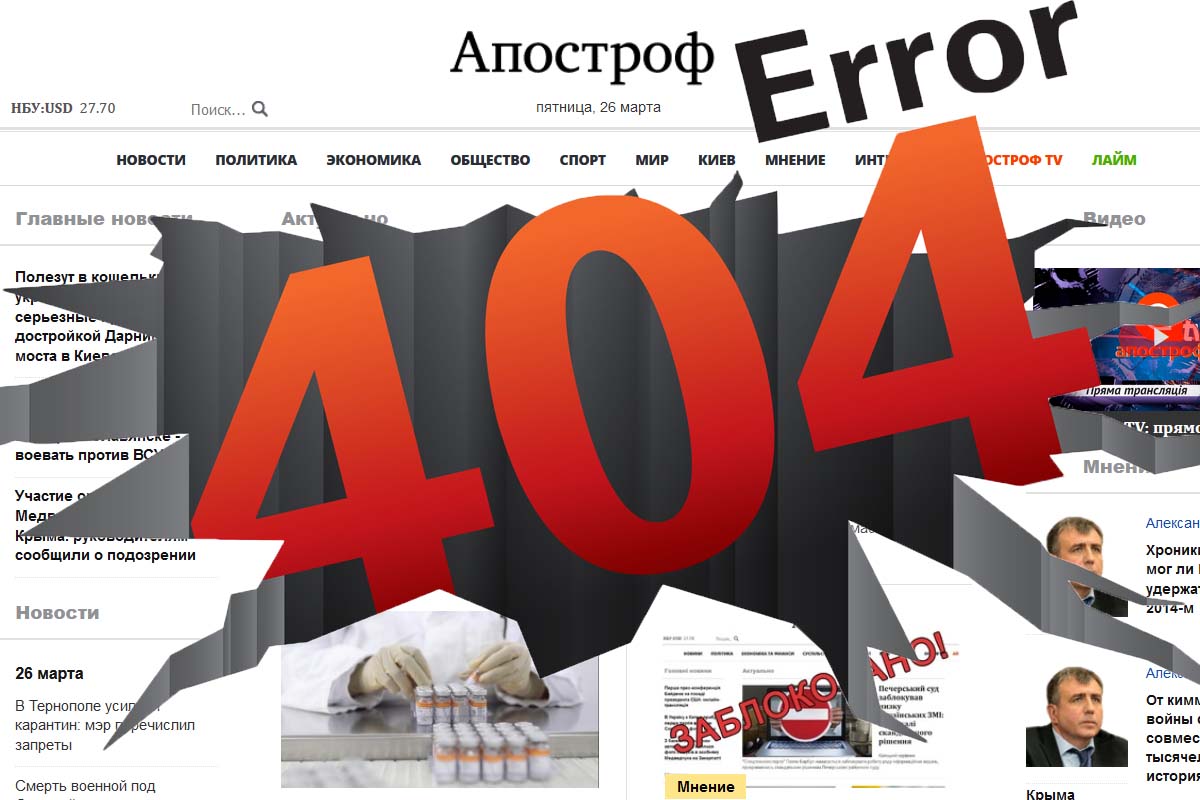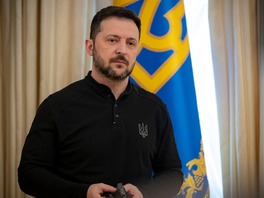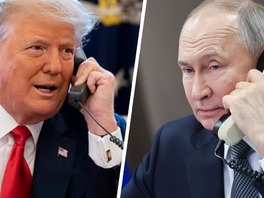Pavlo Barbul, ex-head of “Spetstechnoexport”, has been found trying to pressure 12 Ukrainian online media businesses because of their publications on the accusations which have been posed against him. These publications discussed the alleged abuse of power committed by Mr. Barbul during his tenure at “Spetstechnoexport”, between 2014 and 2018. Feeling that his right to privacy was grossly damaged by these publications, Mr. Barbul decided to enact his revenge upon the Ukrainian press, forgetting, in the meantime, the rules of proper engagement.
The 12 targeted media companies include “Glavkom”, “Golos” and yours truly – “Apostrophe.ua”. The so-called slanderous publications focused on Mr. Barbul’s time at “Spetstechnoexport”, a company that exports and imports military and dual-use goods and services. The published articles were based on information that was open to the public and was lawfully obtained by the journalists involved. The facts were, as per deontological responsibility, reviewed, checked, and confirmed eventually by an official from the NABU office. According to information provided by the Specialized Anti-Corruption Prosecutor’s Office, Mr. Barbul involved a non-resident intermediary to join in on one of the contracts with regard to the supply of military products. In 2015, over 2.2 million dollars were transferred from the subsidiary company “Zavod 410 GA” to the account of this foreign agent under the guise of “payment for acts of service”. However, the gathered evidence shows that this intermediary didn’t provide any services which led to the further execution of the abovementioned foreign trade contract. Furthermore, the office concludes that the subsidiary company suffered material damage, amounting to the equivalent of 55.5 million UAH, because of unjustified transfer of funds to a foreign agent for services that weren’t provided.
Mr. Barbul decided that the mere publication of these allegations constituted a violation of his privacy and initiated criminal proceedings at the Pechersk District Court of Kyiv on the basis of Art. 182. On February 18th, the Court – presiding under judge Tetyana Ilieva – seized the intellectual property rights of the domain names of all 12 media companies, including Apostrophe, and closed access to their web pages via mobile operators and internet providers.


On March 10, it was decided to close the criminal case after all due to the lack of corpus delicti. It was made clear that simply publishing information that was already made public or reporting on the status of a criminal investigation is not a criminal act and doesn’t fall under Art. 182.
However, despite this development, certain mobile operators and internet providers, like Lifecell, Triolan, and “Information Technology”, kept blocking readers’ access to Apostrophe.ua, without a doubt under the pressure of Mr. Barbul.
Now, it must be noted that the disputed publication does not contain slander or other insults at the address of Mr. Barbul. It simply stated facts that Apostrophe.ua read in the evidence gathered throughout the official investigation.
It is outrageous that, in this day and age, Ukraine is still struggling with this blatant example of legal corruption. Mr. Barbul had absolutely no leg to stand on to claim a violation of his privacy. He certainly didn’t have enough evidence to make the court effectively censor and silence the media. In a country with such a fragile democracy as Ukraine, it’s paramount that freedom of speech and protection of journalists are not-to-be-underestimated priorities. The subsequent ignoring of the March 10 ruling – which closed the criminal proceedings – and the continuation of censorship despite the court’s revised decision simply adds insult to injury. Until this day, Apostrophe.ua remains a blocked website.
Mr. Barbul wishes to express his discontent through methods of bullying and silencing, a method well-known in the post-Soviet sphere and a harmful remnant from the past. However, corruption, censorship, and attempts to pressure free media or journalists do not have a place in a modern, democratic Ukraine. There is a need for support by larger powers in order to stop Ukrainian businessmen from bullying fundamental rights and values into submission, simply because the narrative doesn’t please them. Ukraine, therefore, needs aid from its international partners, and small, independent media companies must be able to enjoy the protective stance of a Western partner in order to withstand pressure from within and not succumb to censorship. These media channels, after all, form the backbone of Ukraine’s democracy, which needs to be strengthened.
Hence, it's necessary for the international community to demonstrate their support and send a message to the Ukrainian bandits who still believe that abuse of power and overexertion of authority are valid methods through which they can pollute the information sphere. It’s either necessary for Ukraine’s partners to openly and strongly start supporting these media companies and make sure they stay afloat, withstanding the enormous pressure, or to start invoking sanctions against Ukrainian corrupted businessmen who believe their fortune will enable them to run the country and hold themselves above the law.
The time for silent support is over.





